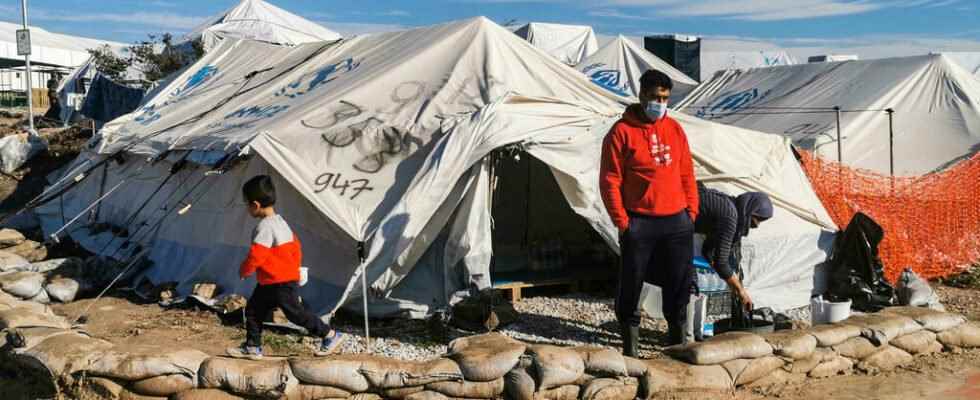On the Greek island of Lesbos, the Moria camp, which has become a symbol of migratory flows to Europe, was destroyed by fire in September 2020. Since then, a temporary structure, known as ” reception and identification center », Was born on the site of Mavrovovouni. A guarded area with controlled access, enclosed between the road and the sea, which greatly limits the freedom of movement of some 2,200 asylum seekers who are currently there. In the future, in theory by the end of 2022, the Greek authorities envisage the creation of a new camp, financed by Europe and similar to those of Samos, Kos and Leros, and whose appearance evokes that of ‘a prison. Joël Bronner went to this refugee camp.
From our special correspondent in Lesbos,
” We feel that we are locked up somewhere. Locked up as if we have no right to life. “Like this 31-year-old Congolese, many asylum seekers feel imprisoned in the Lesbos camp, which replaced that of Moria at the end of 2020. Kamille Mobaki, also Congolese, has been on the island for two years:” Here, it is a kind of prison. You can only go out once a week. And time spent outdoors is limited. At least, in prison, you know the length of your sentence, you know if it’s two, four or six years… Now I’ve been here for two years and maybe I’ll be there for five years. don’t know. We don’t know anything and we lose hope. “
Sitting near three policemen on duty, a baby on her knees, Cameroonian Vicky Chalene gives her point of view on Mavrovouni: ” For the moment, we can’t say anything, because we don’t even have the papers yet and all and all, so if we start talking, there… The living conditions are not easy. They are doing their best … You yourselves, you see : next to the sea, the cold, the wind and everything and everything, with children… There she has already [passé] 2 years here. So the children who need to go to school, they need, they did not ask to be born. “
“The government treats us like animals”
Francis Mutemba, from the Congo, evokes, among other things, the dirt of the camp and the presence of mice which regularly leave, he says, droppings on his bed: ” The camp is near the sea, you cannot spend your life there, it is extremely cold here. Even in summer at times it is cold. This place was a former army ground, it is not a place to live. In addition, the soil is contaminated with lead. I don’t understand the Greek government, they treat us like animals. It is unfair, the system is unfair. “
As the rain falls in heavy drops on Mythilene, the capital of Lesbos, Liza Papadimitriou, who represents MSF, underlines that migrants are increasingly treated like criminals: “ We are being pushed to change our operations and move closer to the camp because people cannot get out. They are subject to discriminatory movement restrictions under the pretext of the Covid, while for the rest of the population, these measures are no longer in force. And, of course, this has an impact on their access to our care. “
All the people encountered that day in Mavrovouni had already had at least one or two refusals of their asylum application. Sometimes more. But in the absence of solutions, they remain locked up in Greece, in Lesbos, in the camp which succeeded Moria. Locked in this rejection.
